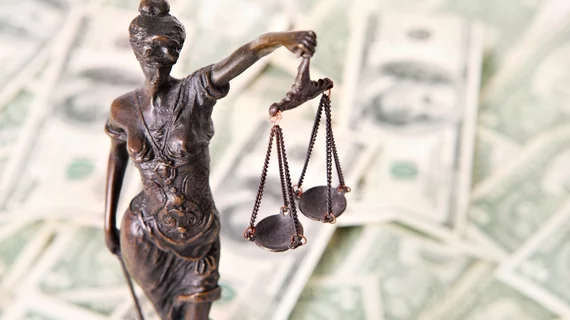Maserati-driving doctor found guilty in $325M healthcare fraud scheme
A Texas-based rheumatologist was found guilty for his role in a $325 million healthcare fraud scheme where he falsely diagnosed patients with lifelong diseases and gave toxic medications as treatments, the Department of Justice announced. The physician operated in South Texas and San Antonio, traveling across his various offices via his private jet and Maserati.
“The conduct in this case was heinous,” Assistant Attorney General Brian A. Benczkowski, of the department’s criminal division, said in a statement.
Jorge Zamora-Quezada, MD, from Mission, Texas, was convicted on one count of conspiracy to commit healthcare fraud, seven counts of healthcare fraud and one count of conspiracy to obstruct justice, according to the DOJ. He is scheduled to be sentenced March 27, 2020. Zamora-Quezada falsely diagnosed “a large number of patients” with life-long diseases that were incurable and then treated those patients with highly toxic medications, such as chemotherapy, that were medically unnecessary.
“Dr. Zamora-Quezada falsely diagnosed vulnerable patients, including the young, elderly, and disabled, with lifelong diseases requiring invasive treatments that those patients did not in fact need,” Benczkowski said.
Many patients, including one who was just 13 years old, were physically and emotionally harmed by the physician, who was seeking profit-driven medical procedures. Some patients were also subjected to hours-long intravenous infusions and other excessive, unnecessary procedures.
“Unnecessary medical tests to create millions of dollars of false billing is as bad as it gets. Patients were put through unneeded anxiety and pain so the doctor could make millions. He won’t need it where he’s headed,” U.S. Attorney Ryan K. Patrick of the Southern District of Texas said in the statement.
Further, Zamora-Quezada attempted to obstruct and mislead a federal grand jury by faking medical records.
“Rarely do we see such an egregious case of health care fraud, where so many patients received years of unnecessary and debilitating treatments, which were rendered out of sheer greed,” Special Agent in Charge Christopher Combs, of the FBI’s San Antonio Field Office, said.
Last year, the U.S. government recovered $2.6 billion in false claims and fraud from the healthcare industry.

